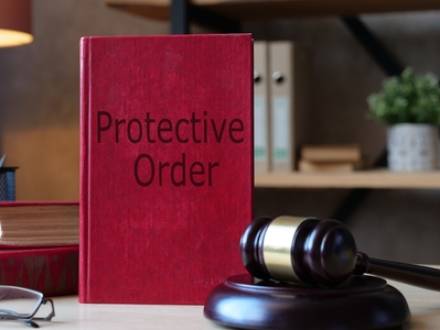Recent Blog Posts
Do Not Believe These 4 Common Domestic Violence Defense Myths
 You have been accused of domestic violence in Texas, and you are scared. Understandably, you may search online for information about this serious charge. However, be wary of domestic violence crime myths you may see online because you could be misled about your legal options.
You have been accused of domestic violence in Texas, and you are scared. Understandably, you may search online for information about this serious charge. However, be wary of domestic violence crime myths you may see online because you could be misled about your legal options.
The best move is to speak to a Texas domestic violence defense attorney in a free consultation about your case and to build a robust defense. Remember, domestic violence is rising in Texas, and state prosecutors are under public pressure to convict those accused, so you want to give yourself every advantage possible as you defend yourself.
Myth 1: Domestic Violence Accusations Cannot Be Refuted
Many assume that if you are accused of domestic violence, a conviction is virtually inevitable. However, there are many false domestic violence accusations in Texas, and being charged does not guarantee a conviction.
How Much Trouble Will My Kid Get in for Stealing?
 As a parent, one of your worst nightmares is to get that call: Your teenager has been arrested for stealing. Whether it is shoplifting, taking something from a friend, or any other form of theft, the questions quickly flood in. What are the legal consequences? How will this affect your child’s future? And what can you do to help?
As a parent, one of your worst nightmares is to get that call: Your teenager has been arrested for stealing. Whether it is shoplifting, taking something from a friend, or any other form of theft, the questions quickly flood in. What are the legal consequences? How will this affect your child’s future? And what can you do to help?
In Texas, theft laws apply to minors just like they do to adults, but the consequences can vary depending on several factors. Fortunately, the intent of the juvenile justice system in Texas is to treat and train juvenile offenders in a way that rehabilitates rather than punishes them.
Here, our Texas juvenile criminal defense attorney breaks it down in simple terms so you can understand what your child might be facing if they have been caught stealing.
Can My Wife Kick Me Out With a Restraining Order?
 Facing the possibility of being removed from your home due to a restraining or protective order can be angering and even scary. What does this mean for your relationship with your partner? Your kids? Can you even go home to get your stuff?
Facing the possibility of being removed from your home due to a restraining or protective order can be angering and even scary. What does this mean for your relationship with your partner? Your kids? Can you even go home to get your stuff?
In Texas, these legal tools are often used in family law or criminal cases to address safety concerns but they can unfairly target innocent people. Understanding the differences between a restraining order and a protective order — and the restrictions they impose — can help you navigate your rights and obligations, making sure you are able to fight an unfair order while not getting in further trouble.
If you are in this situation, an experienced Texas criminal defense attorney can provide guidance, build a strong defense, and help you protect your rights.
What Is the Difference Between a Restraining Order and a Protective Order in Texas?
Although the terms "restraining order" and "protective order" are often used interchangeably, they do not mean the same thing.
What Evidence Do Prosecutors Need for a Domestic Violence Conviction?
 Facing domestic violence charges in Texas can be overwhelming. Many accused people feel confused about the process of being charged with a domestic violence case, what the prosecution must prove to secure a conviction, and what this all means for their future.
Facing domestic violence charges in Texas can be overwhelming. Many accused people feel confused about the process of being charged with a domestic violence case, what the prosecution must prove to secure a conviction, and what this all means for their future.
Understanding the evidence prosecutors need for a successful conviction, and the potential consequences of domestic violence charges, are the first steps if you are facing this serious situation. An experienced Decatur, TX criminal defense attorney can guide you through your case and fight for your rights.
Domestic Violence Laws in Texas
In Texas, domestic violence refers to acts intended to harm a family or household member. This includes physical assault, threats of violence that make the victim fear harm, and any contact considered offensive or provocative. Depending on the situation, the Texas Penal Code categorizes domestic violence offenses as assault, aggravated assault, or continuous violence against the family. The severity of the charge depends on the act’s nature and whether the person who is accused has prior convictions.








